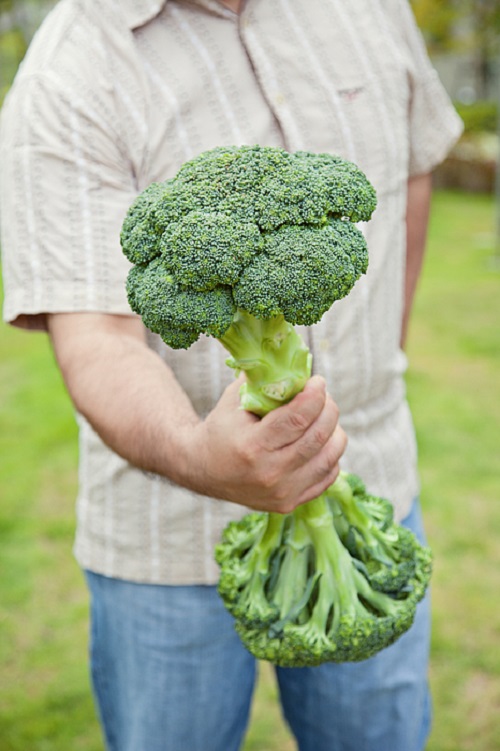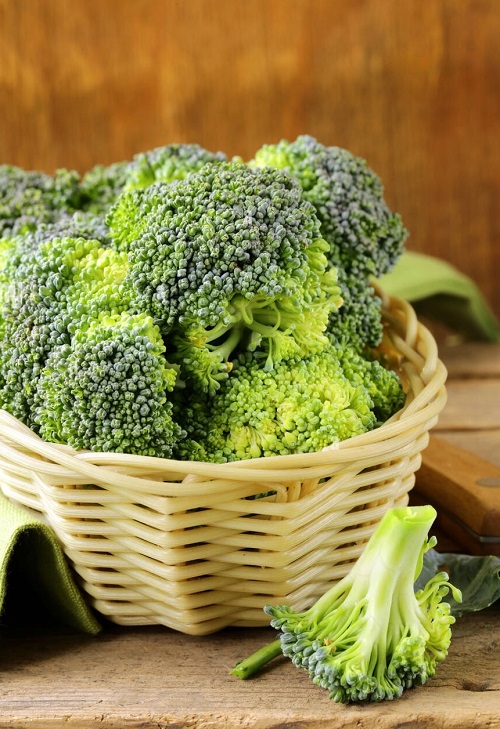Is Broccoli Man Made or Natural? The answer might actually surprise you! Keep on reading for all the details!
Is Broccoli Man Made vegetable or natural – If you too have this question then we are here to clear your doubts once and for all! Explore the fascinating details of broccoli in this artcle!
Learn How to Grow Purple Broccoli + Best Purple Broccoli Varieties here
Is Broccoli Man Made?
So, is broccoli a man made vegetable? Well, broccoli, like many other vegetables we consume today, is indeed a result of selective breeding and is therefore, in a sense, “man-made.” However, it’s not genetically engineered in a lab, as one might think.
The term “man-made” might not be the most accurate term for describing broccoli, as it implies artificial processes. A more precise term could be “cultivated” or “domesticated.” The wild form of broccoli doesn’t look like the big, bushy, green vegetable you’re probably thinking of, but through a process known as selective breeding, it was developed into the form we know today.
Broccoli originated from a type of wild cabbage, Brassica oleracea, native to the Mediterranean and the British Isles. Humans have been cultivating this wild cabbage for thousands of years, and through selective breeding, different cultivars have been created. Broccoli is just one of the vegetables derived from this wild cabbage, along with cauliflower, cabbage, kale, Brussels sprouts, collard greens, and kohlrabi.
Learn How to Grow Romanesco here
Is Broccoli Man Made – How Was Broccoli Developed?
- Selective Breeding: Our ancestors likely noticed that some wild cabbage plants had larger flower buds. By selecting and planting seeds from these plants, they encouraged the trait to proliferate. This is selective breeding, a slow and careful process that occurred over many generations. This type of selective breeding, or artificial selection, is how broccoli came into existence.
- Desirable Traits: Broccoli was bred for its large, edible flower heads. Over time, plants with the most desirable traits were continually chosen for propagation.
- Cultivation: The cultivation of broccoli dates back to the Roman Empire, where it was valued for its taste and perceived health benefits. It was introduced to England in the mid-18th century and then came to America with Italian immigrants.
Check out the Best Broccoli Variety To Grow here
Benefits of Broccoli
- Rich in Nutrients: Broccoli is packed with essential vitamins and minerals, including vitamin C, vitamin K, vitamin A, folate, potassium, and manganese. It also contains dietary fiber and is low in calories, making it a nutrient-dense food choice.
- Good for Heart: The fiber, antioxidants, and anti-inflammatory properties in broccoli contribute to heart health. This vegetable may help lower cholesterol levels, improve blood pressure, and may reduce the risk of heart disease.
- Improves Digestive Health: Broccoli is rich in fiber, which aids in maintaining a healthy digestive system. It promotes regular bowel movements, supports gut health, and may reduce the risk of digestive disorders like constipation, diverticulosis, and inflammatory bowel disease.
- Aids in Making Bones Strong: Broccoli contains essential nutrients for maintaining strong and healthy bones, including calcium, vitamin K, and potassium. These nutrients help in bone formation, density, and overall bone health, reducing the risk of conditions like osteoporosis.
- Promotes Eye Health: The antioxidants lutein and zeaxanthin found in broccoli play a crucial role in promoting eye health. They help protect against age-related macular degeneration and cataracts, two common eye conditions.
- Has Anti-Inflammatory Effects: The presence of anti-inflammatory compounds in broccoli, such as sulforaphane and kaempferol, may help reduce chronic inflammation in the body. Chronic inflammation is linked to various diseases, including heart disease, diabetes, and certain cancers.




